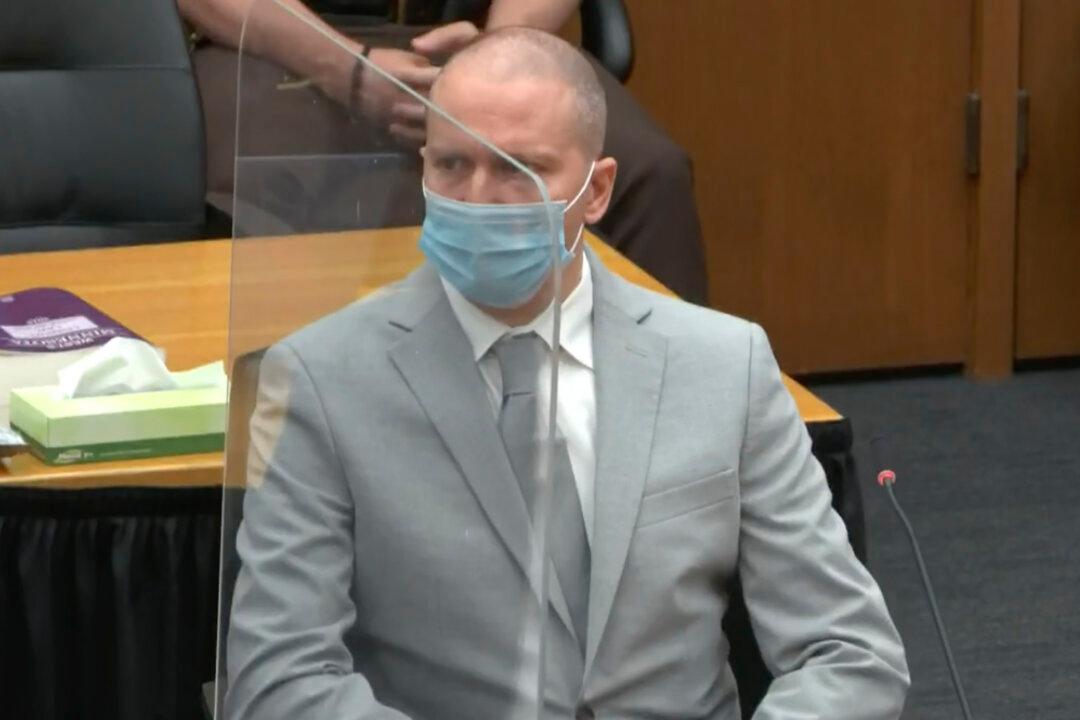Former Minneapolis officer Derek Chauvin on Friday was sentenced to 22 1/2 years in prison for second-degree murder months after he was convicted in the death of George Floyd, coming hours after a judge denied his request for a new trial.
The sentence was handed down by Hennepin County District Court Judge Peter Cahill, who said in the hearing that he didn’t “base [his] sentence on public opinion” or to “send any messages.” Cahill said that he handed down the sentence due to the “particular cruelty” Chauvin exhibited during Floyd’s death.





